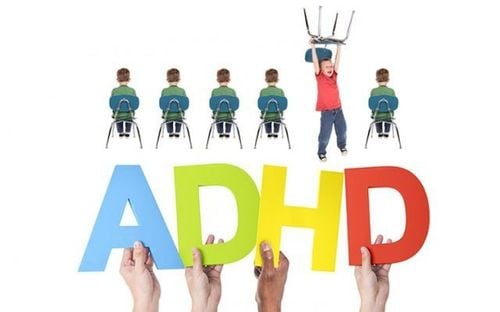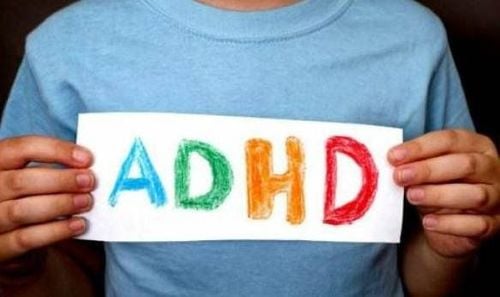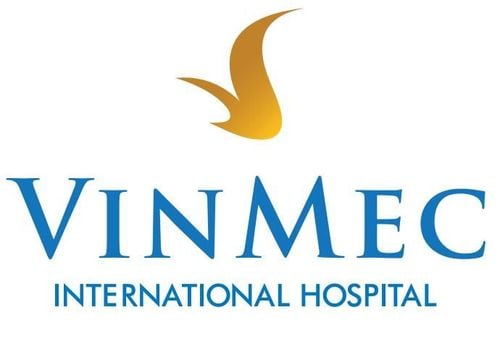This is an automatically translated article.
The article was professionally consulted with Master, Doctor Bui Ngoc Phuong Hoa - Neurologist - Department of Medical Examination & Internal Medicine - Vinmec Danang International General Hospital.1. Symptoms of Absence Epilepsy
People with absence epilepsy often fall suddenly into a state of stupor, as if gazing into space for several seconds. After that, it will quickly return to normal. The manifestations of transient absence of consciousness are very mild, difficult to detect but by no means not dangerous, especially for children.Absence seizures in children often have the main symptom of blank, unresponsive gaze. We can easily confuse it with a loss of focus for about 10 seconds, even lasting up to 20 seconds. Symptoms of absence seizures that can be detailed include:
Sudden cessation of movement, but no fall Lip licking Lip twitching, eyelid twitching, eye blinking Finger rubbing Small movements in both hands After absence seizure In this transient consciousness, the child returns to a normal state and is unaware of what has happened. Children may also have seizures for a period of time before an adult notices the seizures because they are very brief and rapid. Absence seizures can continue for weeks or months before others realize it. This affects the child's ability to concentrate, declines in learning, is also a potentially dangerous risk in children's daily activities such as when swimming. lead to drowning.

The child has a seizure, has symptoms seizures Seizures that continue despite antiepileptic medication Child have automatic behavior lasting minutes or even hours, non-cognitive activities, prolonged confusion jerking longer than 5 minutes
2. Causes of absence epilepsy
Absence of consciousness can be hereditary. Seizures are caused by abnormal electrical impulses from nerve cells in the brain. The brain's nerve cells normally send electrical and chemical signals across the synapses that connect them. In people with epilepsy, brain activity is altered; in absence seizures, these electrical signals repeat for 3 seconds. Sometimes flashing lights or hyperventilation trigger absence seizures.3. Who is at risk for absence epilepsy?
Some of the following factors have a high risk of causing absence seizures in children:Children between the ages of 4 and 14 are at high risk Female children are at higher risk of absence seizures than boys Families with a history of epilepsy epilepsy

4. Diagnosis of absence epilepsy
Some children have seizures like absence epilepsy but not often in children with autism, mental retardation, attention deficit disorder, hyperactivity. To accurately diagnose the condition of absence epilepsy, the child needs to be diagnosed with the following diagnostic methods:Electroencephalogram - EEG: to measure the electrical activity waves of the brain, the patient is asked to breathe quickly and deep, looking at flashing lights for the purpose of triggering seizures Brain scan, brain magnetic resonance imaging gives detailed images of the brain, helping to rule out causes such as stroke, brain tumor. For children under 5 years of age, when performing this diagnostic method, sedation should be used.
5. Treatment of absence epilepsy
The use of drugs capable of reducing the frequency of occurrence or eliminating absence seizures is a common treatment method today. Depending on the patient's condition after being diagnosed and concluded, the doctor will prescribe drugs such as: Ethosuximide (Zarontin): a popular drug to treat absence epilepsy that doctors use. . Most cases such as nausea, vomiting, drowsiness, trouble sleeping, hyperactivity. Valproic acid (Depakine): Girls with absence seizures should continue to take the drug as adults under the direction of their doctor to limit the potential risks of valproic acid. Valproic acid has been linked to a high risk of birth defects in babies, so it should not be used by women during pregnancy or when trying to conceive. Valproic acid can be used in children with both absence seizures and tonic-clonic seizures (grand seizures). Lamotrigine (Lamictal): This drug is less effective than ethosuximide or valproic acid, but it has fewer side effects for people. Patients may develop rash and nausea only when using this type of treatment for absence epilepsy. Most children with absence epilepsy are able to stop using antiepileptic drugs when there is no seizure within 2 years, under the supervision and regular check of the doctor.
6. Complications of absence epilepsy
Children with absence epilepsy may need lifelong antiepileptic drugs to prevent seizures, putting them at risk for major seizures. In addition, other complications and effects such as difficulties in learning, living, behavior and problems of social isolation can also be mentioned in the future.7. Caring for patients with absence epilepsy
Patients with absence epilepsy require a high-fat and low-carbohydrate diet to improve seizure control. However, this diet should only be used when medication does not control seizures.Besides, the lifestyle regimen of getting enough sleep, taking medicine as indicated, on time is the way to effectively treat the disease. Limit driving, excessive recreational activities, and do not swim when alone to limit the risk of dangerous episodes of unconsciousness.
Vinmec International General Hospital is one of the hospitals that not only ensures professional quality with a team of leading medical doctors, modern equipment and technology, but also stands out for its examination and consultation services. comprehensive and professional medical consultation and treatment; civilized, polite, safe and sterile medical examination and treatment space.
Please dial HOTLINE for more information or register for an appointment HERE. Download MyVinmec app to make appointments faster and to manage your bookings easily.











